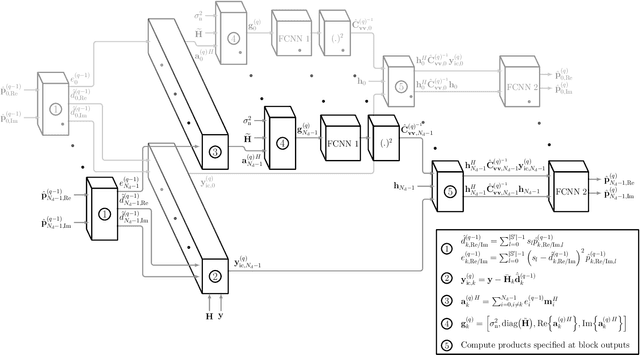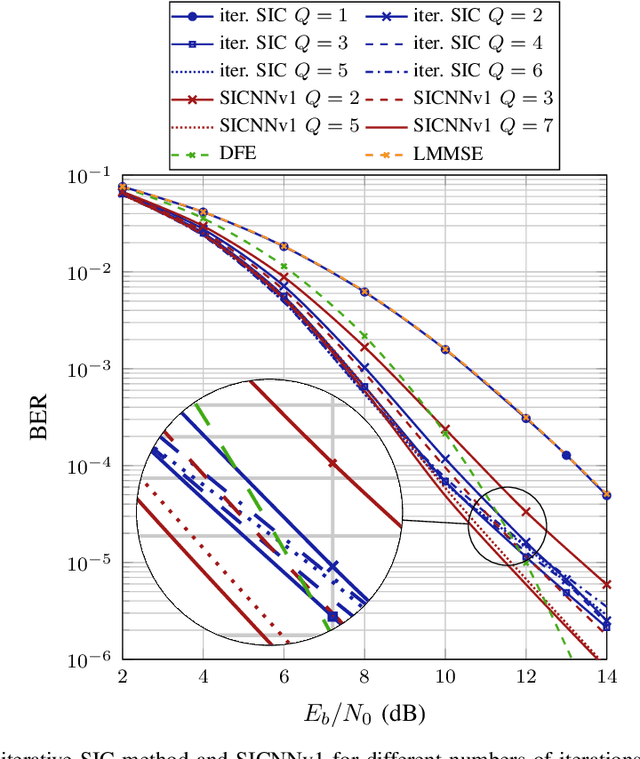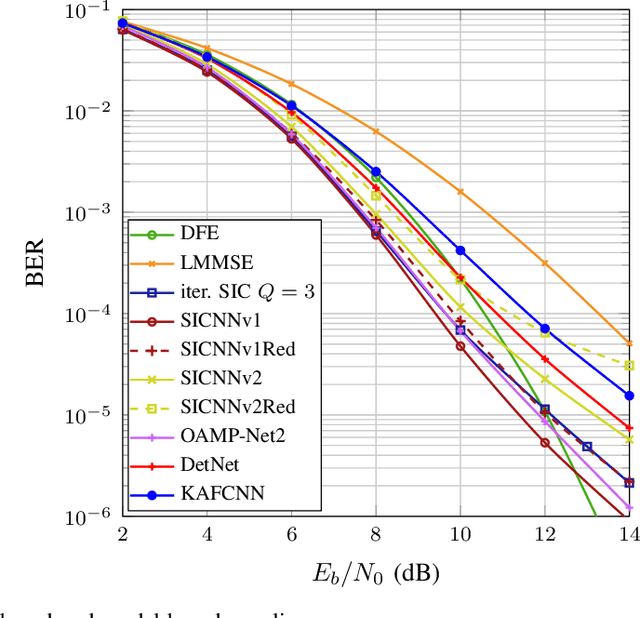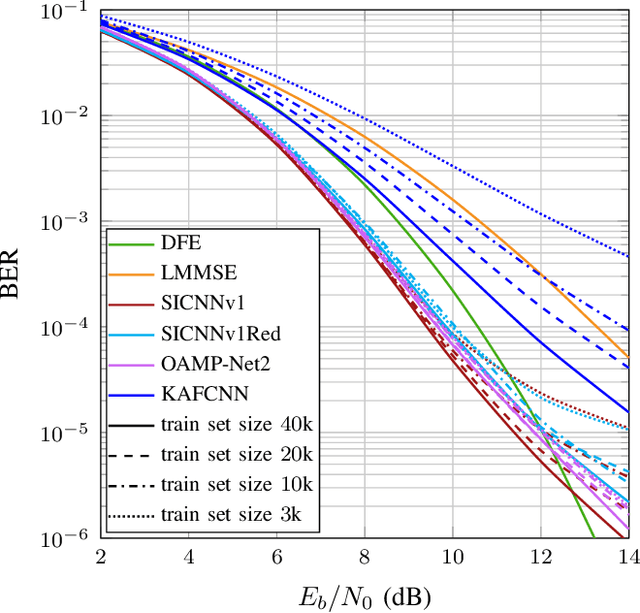SICNN: Soft Interference Cancellation Inspired Neural Network Equalizers
Paper and Code
Aug 24, 2023



Equalization is an important task at the receiver side of a digital wireless communication system, which is traditionally conducted with model-based estimation methods. Among the numerous options for model-based equalization, iterative soft interference cancellation (SIC) is a well-performing approach since error propagation caused by hard decision data symbol estimation during the iterative estimation procedure is avoided. However, the model-based method suffers from high computational complexity and performance degradation due to required approximations. In this work, we propose a novel neural network (NN-)based equalization approach, referred to as SICNN, which is designed by deep unfolding of a model-based iterative SIC method, eliminating the main disadvantages of its model-based counterpart. We present different variants of SICNN. SICNNv1 is very similar to the model-based method, and is specifically tailored for single carrier frequency domain equalization systems, which is the communication system we regard in this work. The second variant, SICNNv2, is more universal, and is applicable as an equalizer in any communication system with a block-based data transmission scheme. We highlight the pros and cons of both variants. Moreover, for both SICNNv1 and SICNNv2 we present a version with a highly reduced number of learnable parameters. We compare the achieved bit error ratio performance of the proposed NN-based equalizers with state-of-the-art model-based and NN-based approaches, highlighting the superiority of SICNNv1 over all other methods. Also, we present a thorough complexity analysis of the proposed NN-based equalization approaches, and we investigate the influence of the training set size on the performance of NN-based equalizers.
 Add to Chrome
Add to Chrome Add to Firefox
Add to Firefox Add to Edge
Add to Edge